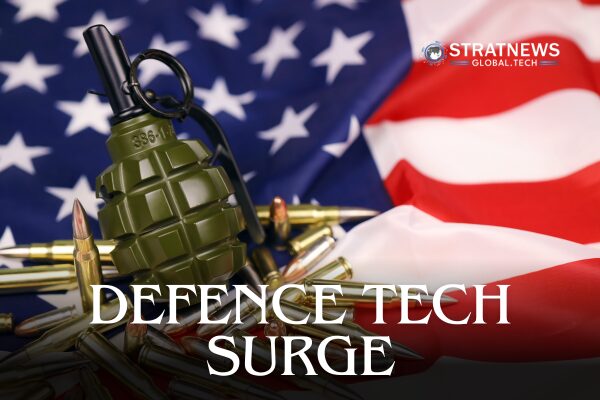Smaller US defence companies are seeing major gains on Wall Street this year, driven by rising demand for modern, low-cost battlefield technologies. As global conflicts such as those in Ukraine and Gaza escalate, military spending is increasing worldwide. This surge has pushed investors toward agile firms developing next-generation systems tailored for rapid deployment.
These companies focus on AI-powered drones, unmanned vehicles and software-driven platforms. Their technologies offer low-cost solutions that reduce reliance on large troop deployments. The Pentagon’s shift towards adaptable and tech-forward systems has further fuelled this interest.
Jon Siegmann, a defence industry expert at Stifel, said: “The winners in this market will be those investing in software-enabled and upgradeable weapons systems.”
Index and Share Gains Reflect Investor Optimism
The NYSE Arca Defence Index has jumped roughly 34% so far in 2025, easily outperforming the S&P 500’s 12% increase. Seven of the index’s top 10 gainers are small- to mid-cap firms. Among them are drone developers like Kratos Defense and AeroVironment, component maker Astronics, and defence technology provider Mercury Systems.
Large firms have also benefited from renewed investor confidence. RTX shares are up 37%, while Northrop Grumman has gained 23% this year.
The US Department of Defense, soon to be renamed the Department of War under President Donald Trump’s order, has proposed a $892.6 billion budget for fiscal year 2026. The plan calls for advanced drone systems and missile technologies while cutting funding for ships and fighter jets.
Nearly $6 billion is earmarked for unmanned aircraft and counter-drone programmes—marking a 78% increase over the previous year.
Mergers, Startups and Future Investment Trends
Defence-focused mergers and acquisitions (M&A) are also on the rise in 2025, even as individual deal values shrink. Only one of 56 US defence acquisitions this year has surpassed $12 billion, according to Mergermarket. This signals a trend toward smaller, targeted purchases aimed at boosting tech capabilities.
Lockheed Martin, for instance, acquired Amentum’s Rapid Solutions unit for $360 million to expand its radar systems.
Lucinda Guthrie of Mergermarket explained, “Major defence firms are acquiring across sectors to strengthen their cybersecurity, AI, and communications capabilities.”
Venture capital interest is also peaking. As of August, investment in aerospace and defence startups had hit a decade-high of $14.17 billion. Startups like Divergent Technologies, which 3D-prints components for major defence contractors, are meeting growing demand for cost-effective weapons and unmanned systems.
Lukas Czinger, CEO of Divergent Technologies, stated: “We’re seeing strong signals for tens of thousands of low-cost systems in the years ahead.”
These developments highlight the growing investor focus on innovation, flexibility, and affordability in the future of global defence.
with inputs from Reuters


